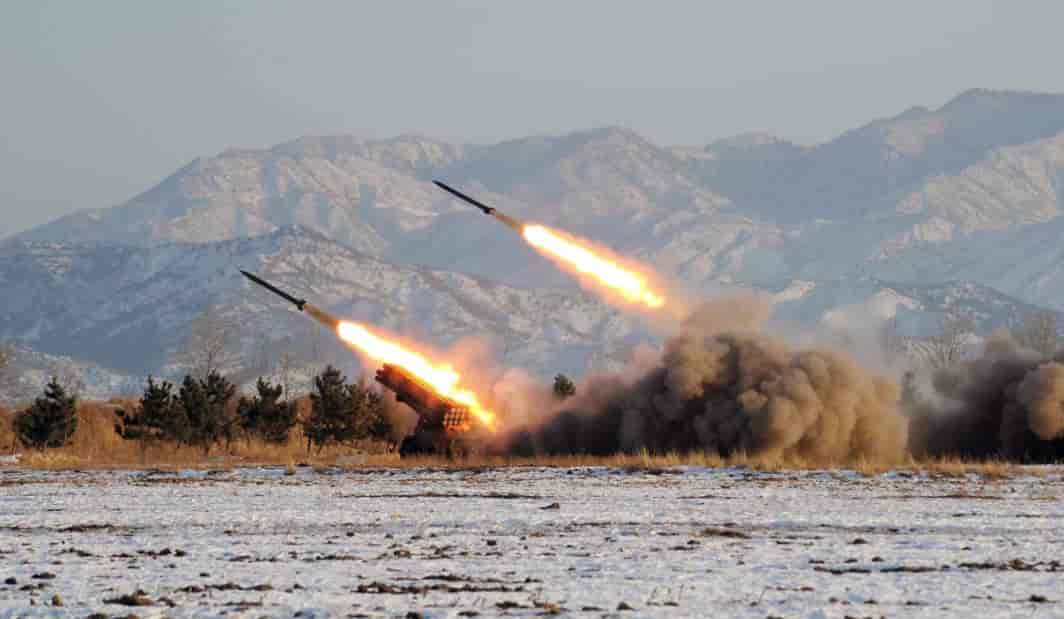
#North Korea
The Joint Chiefs of Staff of South Korea reported on Saturday that North Korea had launched “several cruise missiles” into the Yellow Sea between China and the Korean peninsula.
The latest provocative act by Pyongyang comes amid growing worry for the safety and whereabouts of a US soldier who entered North Korean territory without authorization earlier this week. The hermit dictatorship has so far kept quiet about the incident.
The launches on Saturday are simply the most recent in a string of similar ones by Pyongyang, and they occur as defense cooperation between Seoul and Washington picks up steam and relations between the two Koreas approach an all-time low.
The cruise missile launches occurred on Saturday about 4 am (1900 GMT), according to Seoul’s military.
The JCS said that “South Korean and US intelligence authorities were analyzing the launches while keeping an eye out for signs of additional activities.”
Just three days prior, North Korea launched two ballistic missiles toward Japan off the opposite shore.
Kim Jong Un, the leader of North Korea, has called for accelerating the development of weapons, especially tactical nukes, as diplomatic efforts between Pyongyang and Seoul have stalled.
In retaliation, Seoul and Washington conducted joint military drills with cutting-edge stealth aircraft and vital US weapons, and last week an American nuclear-armed submarine made a port call in South Korea for the first time in decades.
President Yoon’s Warning
President Yoon Suk Yeol unambiguously warned North Korea against any hostile measures involving nuclear weapons against South Korea in a substantial escalation of language. The North’s missile and nuclear development programs, which have long been a cause of instability in the region, have given rise to increased concerns, which prompted the President to make his comments.
The phrase “end of the regime” is viewed as a forceful declaration of South Korea’s commitment to both the security of its own country and that of its allies. The declaration aims to send the North Korean leadership a strong warning that any hostile nuclear-related action will have serious repercussions.
Escalating Tensions on the Korean Peninsula
Due to North Korea’s pursuit of nuclear weapons and its testing of ballistic missiles, tensions on the Korean Peninsula have been on the rise in recent years. The international community has imposed a number of penalties as a result of these actions, further isolating the isolated country.
South Korea and its allies, especially the United States, have worked to maintain a robust military posture and improve regional security capabilities in response to perceived threats. The warning from President Yoon underscores the rising worry about North Korea’s nuclear aspirations and their potential to cause regional instability.
Diplomatic Challenges and the Road Ahead
The region’s stakeholders have persisted in trying to persuade North Korea to participate in diplomatic negotiations aimed at disarmament despite the strong rhetoric and increasing military readiness. The Peninsula’s security issues can be addressed and the protracted conflict can still be settled peacefully through diplomacy.
It is possible to interpret President Yoon’s remarks as an effort to emphasize the need for a peaceful solution while also making it plain that any hostile conduct involving nuclear weapons will not be accepted. Finding a course that ensures regional stability and security requires balancing deterrence with diplomatic outreach.
Conclusion
The already complicated security situation on the Korean Peninsula has taken on a new dimension as a result of South Korean President Yoon Suk Yeol’s warning to North Korea that the “end of the regime” will occur if the South is attacked with nuclear weapons. The international community must continue to be on guard and dedicated to diplomatic efforts to accomplish denuclearization and promote long-lasting peace in the region as long as regional tensions exist.
Future ties between North and South Korea will be greatly influenced by the delicate balance between diplomacy and deterrence. A peaceful solution that takes into account the genuine security concerns of all parties involved must be sought after both sides acknowledge the potential repercussions of a military escalation. The pathway to long-term stability and prosperity for both North and South Korea as well as the larger international community can only be realized via communication and cooperation.
Source- HT






